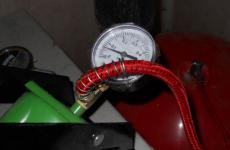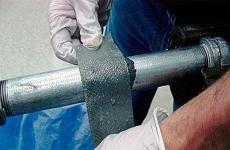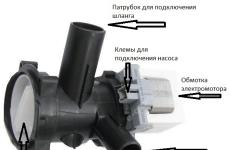Why does the boiler not keep the water pressure and what to do when the gas pressure drops?
2017-06-13 Yulia Chizhikova
Why does the water pressure drop in the heating system and how to raise it?
It sometimes happens that your boiler releases pressure and shuts down. Let's consider several reasons why the boiler does not keep the pressure in the heating system and how it can be corrected.
If the pressure drops constantly, even after make-up, it is possible that your radiators in the heating system are leaking. At first glance, you may not notice this, as the leak will not be noticeable if the batteries are hot and the moisture evaporates on them.
Take a paper napkin and wipe the joints, tap connections, joints with it. Look at the floor to see if you can find dried puddles. If nothing is found, you can use a compressor.
The batteries are cut off from the boiler using valves, water is drained from the radiators, the compressor is connected to the drain taps using hoses and air is pumped. In places where there are fistulas or other defect, you will hear a characteristic sound.
Using tow or sealant, eliminate the leak, if the tap is to blame, replace it. If your heating system is built into the wall and wet spots do not appear on it, you will have to contact a specialist, since a leak can only be detected with a thermal imager. The thermal imager will be able to detect problem areas. To eliminate the leak, in this case, you will have to open the problem area.
Another reason for the low head in the system may be the incorrectly selected power of the unit. The main parameter in the calculation is the volume of the room and the presence of standard radiators. If instead of radiators you have ordinary pipes installed, the volume of liquid in them will be greater, respectively, and the volume of the expanded liquid will also be greater.
Low water pressure in the boiler - what to do?
You can find out complete information on the selection, operation and maintenance of gas boilers of all manufacturers if you go.
If no leaks are detected in the radiators, then the reason why the pressure disappears lies in the boiler. Why does this happen and how to raise (gain, pump, increase) the pressure? If you often pump up water, and the boiler does not hold pressure, there is a possibility that microcracks have formed in the heat exchanger. When the boiler heats up, the cracks increase and leakage occurs. An expert's intervention is urgently required or it is possible.
 Brazing the heat exchanger
Brazing the heat exchanger
The reason for the appearance of microcracks is the wear of the heat exchanger, frequent washing with reagents, poor quality of the metal from which it is made, water hammer with a sharp increase in pressure in the line. They happen, as a rule, after accidents in water mains.
The places where there are microcracks can be identified by the scale layer. If it is easy to remove the heat exchanger, you can try to solder them. Bithermal heat exchangers are almost impossible to repair due to their design features; they will have to be changed.
The boiler does not rise (does not gain) pressure when the feed valve flows. If the pressure in the line is higher than the pressure in the boiler, the liquid through the make-up valve increases the pressure in the boiler to a critical point, and it is released through the safety valve.
As a result, the pressure decreases, the water from the heating system squeezes the liquid in the water supply and heating system. Close the tap, check the tightness of its connection or change it in case of a malfunction.
The pressure turns off (drops) to 0 in the event of a three-way valve malfunction. Large pieces of scale or rust can get into the valve and obstruct the flow, clean the valve.
A problem with the expansion vessel can cause a pressure change. When heated, the volume of water in the system increases, this surplus enters the expansion tank. There is a rubber membrane inside the tank.
The space between the outer wall and the tank membrane is filled with gas. Excess liquid fills the membrane and the pressure in the heating system is released. The gas evens out the excess pressure.
After the temperature drops, the liquid enters the system again. This does not happen with a gas leak. The reason for the improper operation of the expansion tank is a worn nipple that needs to be replaced. Worse, when the membrane is torn, the tank itself will have to be changed.
 Expansion tank in section
Expansion tank in section
You can use a car pump to pump air into the expansion tank. How to add (supply, pump up) the pressure in the expansion tank?
When the switched off boiler cools down, you must carry out the following actions in the exact sequence:
If the pressure drops quickly during inflation and air exits through the connection tubes, this means that the diaphragm has ruptured.
Below is the nameplate data of the pressure in the expansion tank of some wall models.  Pressure gauge malfunction - this can happen if the nozzle that connects the pressure gauge to the unit is clogged. Clean, if it does not help, change the pressure gauge.
Pressure gauge malfunction - this can happen if the nozzle that connects the pressure gauge to the unit is clogged. Clean, if it does not help, change the pressure gauge.
What to do when gas pressure drops?
You can find out the whole truth about the conspiracy associated with the choice, operation and maintenance of heating boilers of all manufacturers and models.
A drop in gas pressure can occur for the following reasons:
- Increased load on the gas pipeline during severe frosts and holidays, connecting additional consumers to the highway. Contact the gas service with a request to increase the gas pressure.
- Gas filter clogged- clean the filter.
- Gas hose clogged, change to a new one.
- Clogged nozzles, clean them with a brush.
- Gas valve defective... If the situation does not change after disassembling and cleaning it, replace it with a new one.
- Old pipes on the gas main are rusted, there is a leak - notify the gas service.
What to do if a problem with the gas supply occurs constantly - some users connect a gas cylinder between the gas pipe and the boiler, using it as a receiver. In this case, when the unit is turned on, gas will flow directly from the cylinder without creating a vacuum in the gas pipeline.
There are models of units, for example, Buderus, Bosch, Deo (Daewoo), which operate at reduced pressure; when buying a boiler, you should pay attention to this.
Another solution to the problem is replacing a gas boiler with an electric boiler. Using it will undoubtedly be more expensive, but you will be with heat and hot water all the time. The following are the supply gas pressures for some models.

Types of pressure
If you want to know about which heating boilers should not be chosen, about the subtleties and nuances of their installation and connection, as well as hidden information on their correct maintenance of all manufacturers and models, then go here -.
But, we also have on this problem and not only, which in the first place you will not find anywhere, because it is asked by specific people who could not get more support and advice anywhere (which they themselves tell us about). And secondly, their problems are so complex that sometimes our expert Alexander Kholodov deals with people for 10 or more days.
And now EVERY question from the user and the answer to it, in order to avoid money costs as a result of improper operation or repair of the boiler. And here it does not matter which manufacturer's apparatus is involved in the issue. The only important thing is that unique situation, as a result of which this issue arose, because as one good saying goes: "if forewarned, then forearmed."







